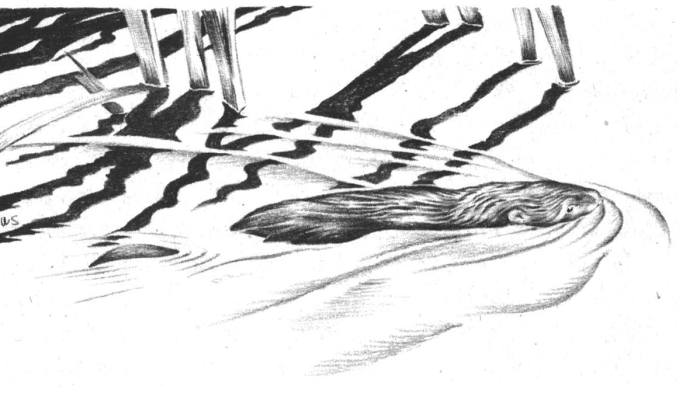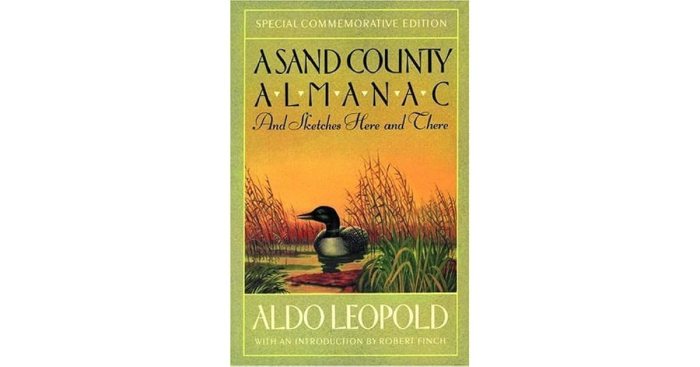Quotes from a sand county almanac – In “A Sand County Almanac,” Aldo Leopold eloquently captures the beauty and fragility of the natural world, offering profound insights into conservation and environmental ethics. This seminal work, a collection of essays and observations, has profoundly influenced our understanding of our relationship with the land.
Leopold’s writing style is both lyrical and scientific, blending personal anecdotes with ecological observations. His use of literary devices, such as metaphors and similes, brings the natural world to life, while his philosophical musings challenge us to reconsider our place within it.
Key Themes and Ideas
Aldo Leopold’s “A Sand County Almanac” explores the interconnectedness of nature, the importance of conservation, and the ethical responsibility of humans towards the environment. Leopold’s philosophy of conservation emphasizes the intrinsic value of all life and the need to preserve the integrity of ecosystems for future generations.
Leopold’s Land Ethic, Quotes from a sand county almanac
Central to Leopold’s conservation philosophy is the concept of a “land ethic,” which extends ethical consideration beyond humans to include the land and all its inhabitants. This ethic recognizes the interdependence of all living things and the importance of maintaining the health and balance of natural systems.
Literary Analysis

Leopold’s writing style in “A Sand County Almanac” is characterized by its lyrical prose, vivid imagery, and personal anecdotes. He employs literary devices such as metaphors, similes, and personification to convey complex ecological concepts and evoke a sense of wonder and appreciation for the natural world.
Personal Experiences and Observations
Leopold’s writing is deeply influenced by his personal experiences and observations as a naturalist and ecologist. He draws on his extensive knowledge of the natural world to provide detailed and insightful descriptions of the flora, fauna, and ecosystems he encounters.
Ecological Insights
Leopold’s observations and insights into the natural world provide a valuable understanding of ecological principles and the importance of biodiversity. He emphasizes the interconnectedness of ecosystems and the role of humans as part of a larger web of life.
Human Impact on the Environment
Leopold also addresses the negative impacts of human activities on the environment. He discusses issues such as deforestation, pollution, and overconsumption, and calls for responsible stewardship of natural resources.
Quotations and Impact: Quotes From A Sand County Almanac

Leopold’s writing is replete with memorable and impactful quotes that have become iconic in environmental literature. These quotes reflect his deep understanding of nature and his passion for conservation.
Significance and Influence
Leopold’s writings have had a profound influence on environmental conservation and activism. His ideas have inspired countless individuals and organizations to work towards the preservation and restoration of natural ecosystems.
Legacy and Influence
The legacy of “A Sand County Almanac” continues to inspire and guide conservation practices and environmental policy. Leopold’s contributions to the field of ecology and environmental ethics have made him a towering figure in the movement for environmental protection.
Contemporary Relevance
Leopold’s ideas remain relevant and significant in contemporary environmental discourse. His emphasis on the interconnectedness of nature and the importance of ethical stewardship is essential for addressing the environmental challenges of the 21st century.
FAQ Guide
What is the central theme of “A Sand County Almanac”?
The central theme is the development of a “land ethic,” an ethical framework that guides human interactions with the natural world.
How does Leopold use literary devices in his writing?
Leopold employs metaphors, similes, and personification to create vivid imagery and convey complex ecological concepts.
What is the significance of Leopold’s concept of a “land ethic”?
The land ethic recognizes the inherent value of all living things and emphasizes the need for humans to act as responsible stewards of the environment.